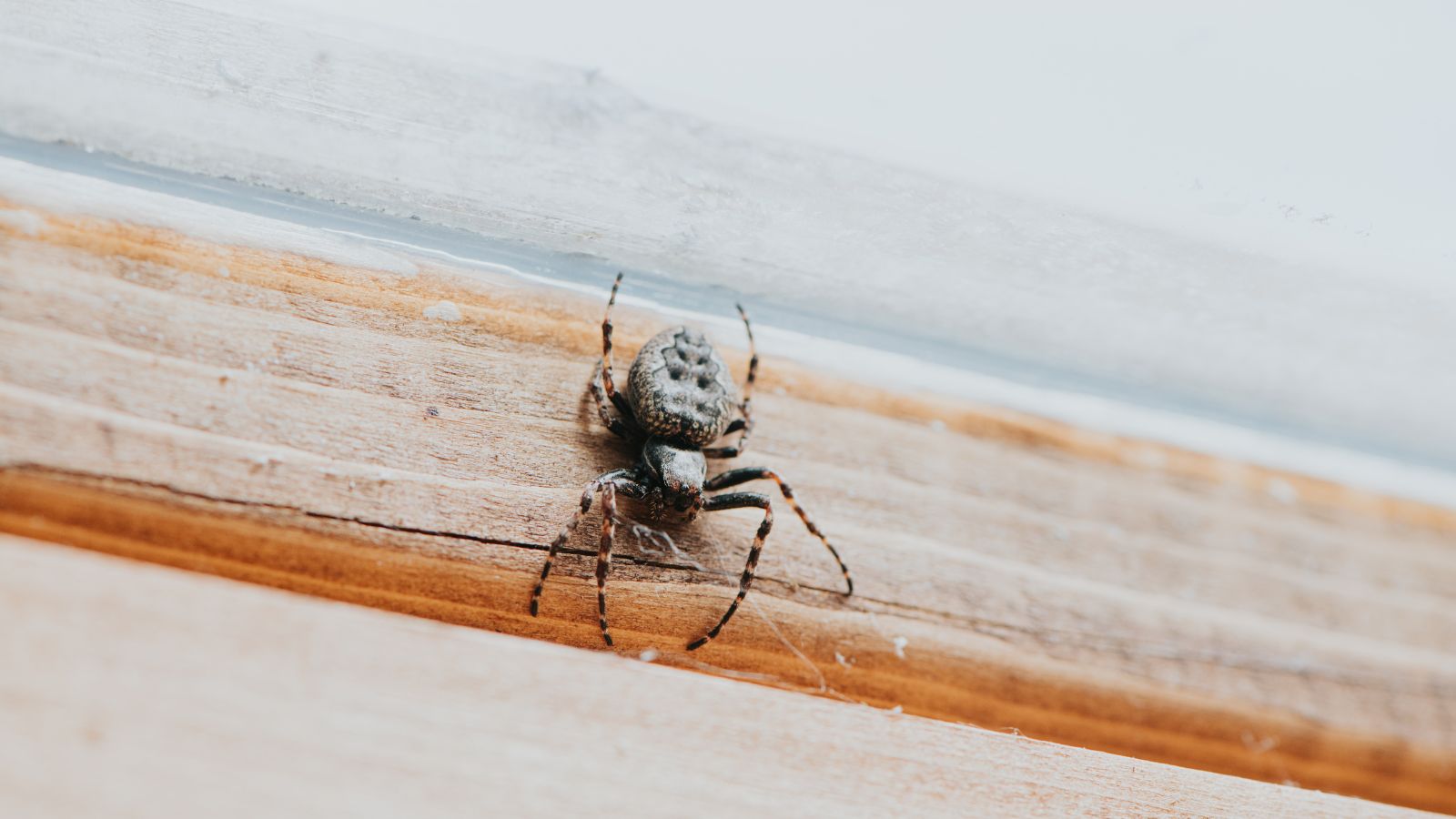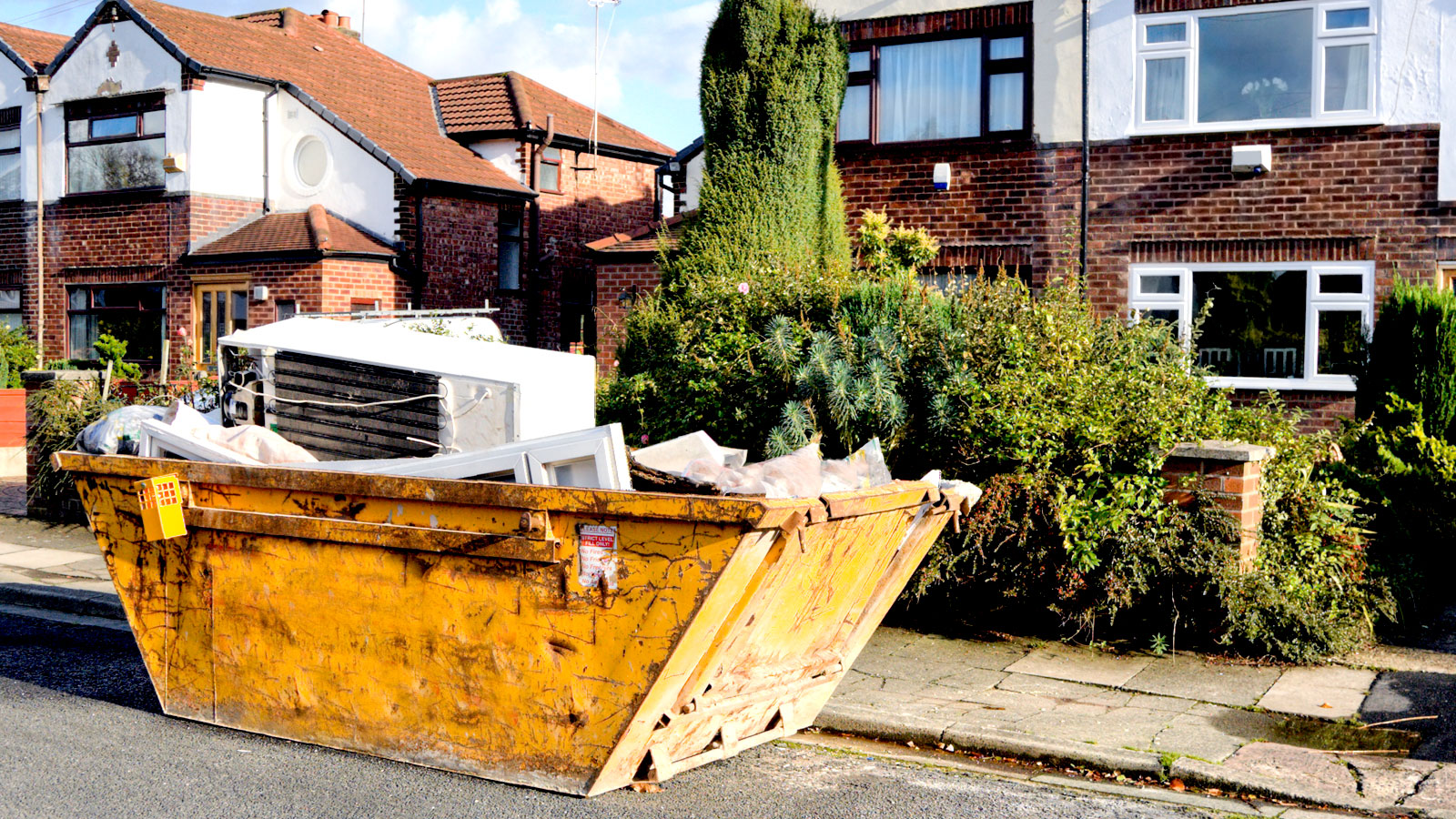5 ways to keep spiders out of your house this autumn – harmless methods to prevent them sneaking inside
Try these expert-backed tips to stop eight-legged critters from taking over your home

Bring your dream home to life with expert advice, how to guides and design inspiration. Sign up for our newsletter and get two free tickets to a Homebuilding & Renovating Show near you.
You are now subscribed
Your newsletter sign-up was successful
If you’ve ever wondered how to keep spiders out of your house, the first step is understanding why they come in in the first place. As the seasons change, these eight-legged visitors start seeking out warmth, shelter and food sources, and our homes provide the perfect environment.
Let’s be honest, spiders may play a useful role in keeping other household pests in check, but that doesn’t mean we want them moving in with us. For many homeowners, few things trigger a shiver faster than spotting one skittering across a pillow or lurking in the corner of the bathroom. Older properties, or houses in the middle of renovation, are especially vulnerable thanks to gaps in brickwork, loose seals or areas where old meets new.
When it comes to keeping spiders at bay, preventing them from getting inside is far more effective than dealing with them once they’ve already moved in. The good news is that there are plenty of simple, effective ways to make your home far less appealing to spiders. Pest control experts recommend focusing on a few key areas to make your home less inviting to these unwanted guests.

1. Seal cracks and entry points to your home

Need more advice or inspiration for your project? Get two free tickets to the Homebuilding & Renovating Show.
For such small creatures, spiders are remarkably good at finding their way indoors. Any tiny gap or opening can be an open invitation, which is why older homes or those in the middle of renovation often see more spider activity. Loose brickwork, cracked sealant and spaces around pipework all act as easy entry points.
Nick Ferrante from Excel Pest Services notes that homes offer countless places for spiders to slip in and settle: “Homes provide a variety of safe, undisturbed hiding spots such as basements, attics, wardrobes, and crawl spaces. The presence of moisture is also appealing to many spider species, making bathrooms, kitchens and laundry rooms common places to find them.”
It means that even the smallest cracks around windows, doors or utility lines can become pathways for spiders, especially when they’re drawn inside by warmth or a steady food source. This is why exclusion is the number one step. In older or renovated homes, it’s especially important to pay attention to places where old meets new construction, as these areas are often riddled with small openings.
Nick advises you should “inspect your home for cracks, gaps, and openings around doors, windows, and foundations, then seal any entry points with caulk or weather stripping.”
Bring your dream home to life with expert advice, how to guides and design inspiration. Sign up for our newsletter and get two free tickets to a Homebuilding & Renovating Show near you.

Nick is an associate certified entomologist who has been with Excel Pest Services for almost 30 years, having joined shortly after its founding. He currently oversees their southern territory, which encompasses three service centres, and is responsible for the delivery of top-quality service to all customers.
2. Declutter and clean (inside and out)
Spiders thrive in quiet, undisturbed corners, particularly the kind you’ll find behind storage boxes, under furniture or in lofts and basements.
“Clutter is the perfect home for a spider, especially in a garage where you might be keeping furniture, boxes or debris," explains Alastair Mayne, COO at Garolla. By getting rid of clutter in your home or garage, you’re eliminating potential nests for spiders, meaning there are fewer places for them to hide or set up home.”
Regular vacuuming and dusting not only removes spiderwebs but also reduces the insects that spiders feed on, making your home far less attractive to them. “Things like spills, rubbish or odours can also attract pests,” says Alastair Mayne. “Even things you might not immediately think of as being an issue, like not cleaning your pets’ food and water bowls every day, can lure pests into your home. By taking the rubbish out and securing it safely in a bin, cleaning any spillages, and wiping down surfaces, you’re creating a clean environment that has little attraction for pests.”
According to Nick Ferrante, you shouldn’t stop at cleaning the inside of your home: “Spiders often enter homes through outdoor vegetation and debris. So, keep vegetation trimmed and away from the exterior of your home to eliminate hiding spots for spiders. Remove leaves, woodpiles, and other outdoor clutter where spiders can hide.”

As a property expert at Garolla, Alastair Mayne has done his research on preventing pests from entering the home via garages and poorly sealed entry points.

3. Manage indoor moisture levels
“Spiders love warm, damp environments like garages, basements or bathrooms,” explains Alastair Mayne. “This is because moist areas provide hydration, but also, they are the perfect environment for spiders to maintain their webs’ flexibility and durability. Similarly, moisture attracts other pests, like mosquitos and silverfish, which are spiders’ favourite prey.”
To combat this, Nick Ferrante recommends fixing leaky pipes, repairing dripping faucets, and ensuring proper ventilation in bathrooms, kitchens and other areas prone to moisture buildup.
He also recommends using dehumidifiers in damp areas to reduce indoor humidity levels.
4. Try a DIY spider repellent
“You don’t need harsh chemicals – or closed windows – to have a bug-free home,” assures Jo Trotman, marketing manager at The Residence Collection. “White vinegar is an inexpensive kitchen staple that doubles as an effective non-toxic insect repellent.”
You can pick up a 5 Litre Bottle of Unscented White Vinegar from B&Q for as little as £6.99. Here’s how Jo recommends you use it to combat critters:
- Mix equal parts white vinegar and water in a spray bottle.
- Add a few drops of peppermint or lavender essential oil.
- Spray around window frames, sills and corners to create a natural spider barrier.
“This DIY spray repels everything from ants to spiders, while leaving your home smelling fresh,” says Jo. “It’s an easy, eco-friendly alternative to harsh chemical insecticides.”
According to Jo, another natural spider repellent is citrus peel: “Don’t toss those lemons or orange peels,” she says. “Place them along your windowsills instead.”
Nick Ferrante agrees: “Spiders dislike the smell of citrus, so you can also rub the peels along baseboards and windowsills to repel them.”
“Spiders are also deterred by the scent of cedarwood,” adds Nick. “Place cedar chips or blocks in closets, cabinets, and other areas where spiders may hide. You can also use cedarwood essential oil diluted in water as a spray.”

Jo works as marketing manager for The Residence Collection. As providers of innovative flush PVCu window and door systems, they know a thing or two about keeping your home sealed from unwanted weather conditions and pests.

5. Use a humane spider catcher
If you prefer a hands-on but humane approach, a spider catcher is a great gadget to have. These long-handled devices use soft bristles to gently trap spiders without causing harm, allowing you to safely carry them outdoors.
And if you're really feeling brave, the classic ‘upside down glass and paper’ trick is one of the simplest ways to get rid of spiders without harming them.
Shop essentials for removing spiders

This glass bottle has been made from at least 20% recycled glass and the lid is crafted from 100% recycled plastic. It's ideal for storing homemade spider repellents.

Easy, safe and chemical-free, this is the friendliest way to remove spiders without harm. The long 65cm handle makes light work of reaching ceilings and corners.

Place these cedar blocks in drawers and wardrobes to keep spiders away. They can also be used to protect clothing by keeping moths away too.
FAQs
Why do spiders come inside?
Spiders don’t just wander into your home by chance. As the seasons shift, they’re drawn inside for shelter, warmth and reliable food sources.
“Spiders come indoors in autumn mainly for shelter and to seek out mates," explains Ed Dolshun, technical director at Catchmaster®. "They’re looking for a few things: warmth, quiet corners, and food.” Together, these conditions make our homes particularly inviting.
Nick Ferrante, associate certified entomologist at Excel Pest Services, adds that spiders are opportunistic hunters: “Spiders feed on other insects, so if your home has a significant number of pests like flies, ants, or beetles, it naturally attracts spiders looking for a meal."

Ed Dolshun is the Catchmaster® brand’s Vice President of Business Development and Technical Director and an expert in trapping tips. In his role, Ed is responsible for both the development of new products as well as validation for existing products.
Will essential oils get rid of spiders?
If you’re looking for chemical-free options, there are natural scents that spiders dislike. “Spiders hate peppermint, tea tree, and eucalyptus oils because they contain compounds that disrupt the spiders’ natural senses and pheromones,” explains Alastair Mayne, property expert at Garolla. “The strong scent of some essential oils, like menthol, can also replicate plants that spiders tend to avoid because they associate them with danger.”
But Ed Dolshun from Catchmaster cautions that you shouldn’t rely on essential oils outright: “Natural remedies like peppermint oil or lavender might make a room smell fresh, but definitely more of a myth,” he explains. “Mostly it could be a temporary deterrent. If you are only relying on myths, you could end up with a problem. If activity is heavy and you’re uncomfortable dealing with it yourself, you can always call in the pest control professionals.”
Do house spiders in the UK bite?
Yes, according to a paper published by the The University of Oxford, it is possible for false widow spiders to bite humans. However, this is quite uncommon.
In most cases, spiders are more of a nuisance than a real problem. You may notice more webs gathering in corners and dust building up, and for those with arachnophobia, their presence can be unsettling. However, thankfully they don’t damage your home in the way other pests might.
That said, an abundance of spiders can sometimes point to underlying structural concerns. Cracks in walls, gaps around windows and doors, or damp conditions all create the kind of environment spiders thrive in, and these issues can also let in other, more destructive pests.
On a more positive note, if you’re happy to live alongside spider roommates, these eight-legged creatures can actually help reduce the number of household pests you have to contend with.
Want more advice on tackling unwanted pests at home? Read our expert guides to getting rid of carpet moths and how to get rid of carpet beetles.
EDITOR’S NOTE: An earlier version of this article included a quote from a purported expert whose credentials we have not been able to verify. The quote has been removed. We regret this lapse in our verification process and have updated our internal protocols to reduce the risk of recurrence.

Gabriella is an interiors journalist and has a wealth of experience creating interiors and renovation content. She was Homebuilding & Renovating's former Assistant Editor as well as the former Head of Solved at sister brand Homes & Gardens, where she wrote and edited content addressing key renovation, DIY and interior questions.
She’s spent the past decade crafting copy for interiors publications, award-winning architects, and leading UK homeware brands. She also served as the Content Manager for the ethical homeware brand Nkuku.
Gabriella is a DIY enthusiast and a lover of all things interior design. She has a particular passion for historic buildings and listed properties, and she is currently in the process of renovating a Grade II-listed Victorian coach house in the West Country.
